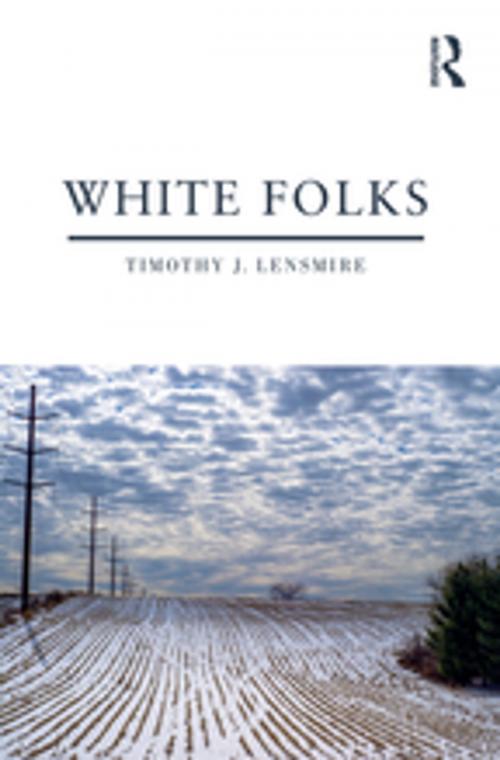White Folks
Race and Identity in Rural America
Nonfiction, Social & Cultural Studies, Social Science, Cultural Studies, Ethnic Studies, Reference & Language, Education & Teaching, Teaching, Teaching Methods| Author: | Timothy J. Lensmire | ISBN: | 9781351719087 |
| Publisher: | Taylor and Francis | Publication: | June 9, 2017 |
| Imprint: | Routledge | Language: | English |
| Author: | Timothy J. Lensmire |
| ISBN: | 9781351719087 |
| Publisher: | Taylor and Francis |
| Publication: | June 9, 2017 |
| Imprint: | Routledge |
| Language: | English |
White Folks explores the experiences and stories of eight white people from a small farming community in northern Wisconsin. It examines how white people learn to be ‘white’ and reveals how white racial identity is dependent on people of color—even in situations where white people have little or no contact with racial others.
Drawing on in-depth interviews with Delores, Frank, William, Erin, Robert, Libby, and Stan, as well as on his own experiences growing up in this same rural community, Lensmire creates a portrait of white people that highlights how their relations to people of color and their cultures are seldom simple and are characterized not just by fear and rejection, but also by attraction, envy, and desire. White Folks helps readers recognize the profound ambivalence that has characterized white thinking and feeling in relation to people of color for at least the last two hundred years. There is nothing smooth about the souls of white folks.
Current antiracist work is often grounded in a white privilege framework that has proven ineffective — in part because it reduces white people to little more than the embodiment of privilege. Lensmire provides an alternative that confronts the violence at the core of white racial selves that has become increasingly visible in American society and politics, but that also illuminates conflicts and complexities there.
White Folks explores the experiences and stories of eight white people from a small farming community in northern Wisconsin. It examines how white people learn to be ‘white’ and reveals how white racial identity is dependent on people of color—even in situations where white people have little or no contact with racial others.
Drawing on in-depth interviews with Delores, Frank, William, Erin, Robert, Libby, and Stan, as well as on his own experiences growing up in this same rural community, Lensmire creates a portrait of white people that highlights how their relations to people of color and their cultures are seldom simple and are characterized not just by fear and rejection, but also by attraction, envy, and desire. White Folks helps readers recognize the profound ambivalence that has characterized white thinking and feeling in relation to people of color for at least the last two hundred years. There is nothing smooth about the souls of white folks.
Current antiracist work is often grounded in a white privilege framework that has proven ineffective — in part because it reduces white people to little more than the embodiment of privilege. Lensmire provides an alternative that confronts the violence at the core of white racial selves that has become increasingly visible in American society and politics, but that also illuminates conflicts and complexities there.















